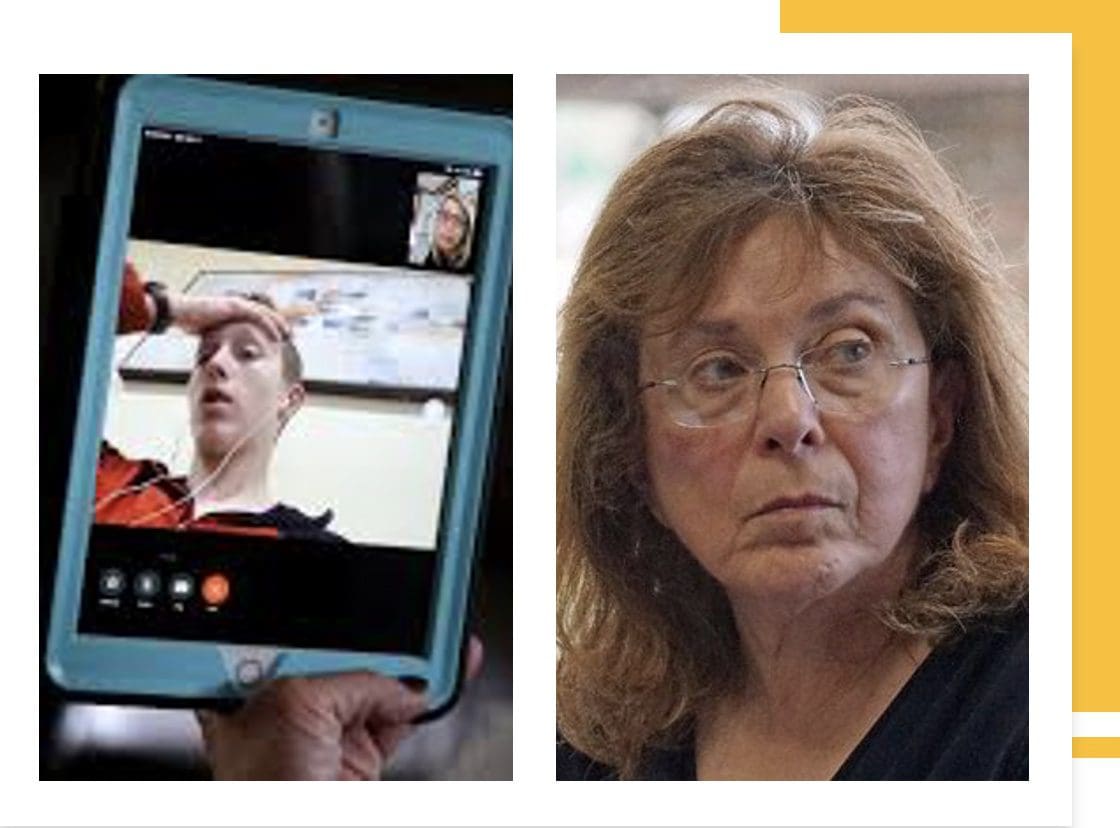Search Posts
Recent Posts
- Real Estate in RI: Seaside waterfront communities are all the rage. Who’s buying – Emilio DiSpirito June 6, 2025
- All About Home Care, with two Rhode Island locations, closing after 22 years in business June 6, 2025
- Rhode Island Weather for June 5, 2025 – Jack Donnelly June 5, 2025
- RI Veterans: Did you know? 05.06.25 (Rental help, events, resources) – John A. Cianci June 5, 2025
- We Cook! Mill’s Tavern Rosemary-Lemon Statler Chicken, Yukon Golds, Haricot Vert and Dijon Demi June 5, 2025
Categories
Subscribe!
Thanks for subscribing! Please check your email for further instructions.

Rhode Islanders with Developmental Disabilities – staffing and visitation during COVID19 pandemic
by Gina Macris, Developmental Disabilities News – special to RINewsToday
Court To Hear Plan To Shore Up RI DD Providers
A federal court monitor says Rhode Island must release $2 million a month designated for adults with developmental disabilities to keep service providers afloat between December and June.
The money would be used exclusively to recruit and retain new workers and boost the pay of existing staff to a minimum of $20 an hour, as well as cover the cost of personal protective equipment and other expenses related to COVID-19.
A. Anthony Antosh submitted a three-page report outlining the rationale for his plan to the U.S. District Court Nov. 18 and asked the state to tell the court how it will address the recommendations by Nov. 30. Chief Judge John J. McConnell has moved up the deadline, scheduling an on-line hearing on the status of consent decree compliance at 9 a.m. Tuesday, Nov. 24.
Antosh said that a rise in coronavirus cases has affected the population with intellectual or developmental disabilities in several ways:
• More people are sick
• Private services providers and families independently managing their loved ones’ programs can’t find staff
• The number and frequency of employment-related services and supports for community activities required by the consent decree has declined
Under the current fee-for-service system, providers are increasingly constrained in their ability to file claims with the state, exacerbating their already-precarious financial condition.
Antosh indicated that the state could release $2 million a month to service providers for the next six months because average monthly spending has decreased by roughly that amount from April through October, when compared with the previous six-month period.
He warned that the consortium hired by the state Department of Behavioral Healthcare, Developmental Disabilities and Hospitals (BHDDH) to review the system top to bottom concluded that private provider agencies were fiscally “fragile and profoundly undercapitalized” even before the pandemic hit. Now their financial position is even worse, Antosh said.
Private service agencies, which support about 83 percent of the population protected by the consent decree, are using most of their resources to serve adults in group homes, where COVID-19 cases are multiplying, Antosh said. Citing a daily report of new cases provided by BHDDH, he said 28 percent of all positive cases in residents, 35 percent of all positive cases in staff and 21 percent of all hospitalizations have occurred in the past six weeks.
A total of 580 staff and residents in 147 group homes – about half of the 291 congregate care settings in the state – have tested positive since the pandemic began, Antosh said.

Several agencies report they are unable to get staff unless they pay them $30 an hour in COVID-positive group homes and $25 an hour in quarantined homes, where the COVID status is uncertain. Even then, they cannot find enough workers to fill the state staffing requirements, Antosh said.
People with developmental disabilities living in family homes, meanwhile, “are receiving only limited supports related to employment and integrated community and day activities,” the monitor’s report said.
The monitor said the state “has demonstrated good faith in attempting to address the impact of COVID-19” in multiple ways, including:
• Special payments early in the pandemic that allowed providers to bill at pre-COVID rates for two months
• Recent approval of an additional $3 million from the CARES Act to provide up to $1,200 in “payroll support” for existing full time direct care staff or recruitment funds for new staff. That boost is also time-limited, Antosh said.
Despite these and other initiatives, Antosh said, “there is significant concern that, if additional resources are not provided for the remainder of the current fiscal year, providers will be unable to recruit and retain sufficient staff needed to provide the employment and community services required by the Consent Decree.”
Antosh said BHDDH figures show a decrease of $11,444,874 in expenditures for developmental disabilities from April to October, when compared with the previous six-month period, an average of $1,907,479 per month. His plan recommends the state put that money to use by allocating $2 million a month, beginning in December, through the end of the fiscal year June 30, 2021.
As has been the case with other COVID-funding initiatives, providers should submit a proposal and a rationale, Antosh said. He said those who direct their own programs or who live independently or with families also should have access to these funds.
The public may observe the court hearing on line by going to the calendar page of the U.S. District Court and entering the date, November 24, and the name of Judge McConnell. To access the calendar click here.
_____
Visitation Ban Imposed On RI DD Group Homes As COVID-19 Surges Again
Rhode Island group home residents living every day with intellectual and developmental challenges will now have to cope with yet another hurdle – a ban on receiving visitors or visiting family homes – coming just a week before Thanksgiving.
With the state headed toward a lockdown to contain a surge in coronavirus cases, the Department of Behavioral Healthcare, Developmental Disabilities and Hospitals (BHDDH) has advised operators of all state-licensed congregate care settings, including 291 group homes for adults with developmental disabilities, to suspend visits of residents with family and others except in “very specific compassionate care situations.”
At the same time, group home operators “must have a process in place, at all times, to facilitate remote communications between a resident and a virtual visitor” through video calls and other applications on cell phones or tablets, according to BHDDH director A. Kathryn Power.
Kevin Savage, the Director of Developmental Disabilities, announced the visitation ban during a quarterly public forum Monday, Nov. 16. He said BHDDH issued the advisory Friday, Nov. 13 to service providers.
Among the 291 group homes for adults with developmental disabilities, 63 staff members and 33 residents have tested positive for COVID-19 in the last two weeks, Savage said, but none have been hospitalized during that time.
Those figures were disputed Nov. 18 by David Reis, CEO of the Fogarty Center, a private service agency, who said that one staff member died of COVID-19 on Monday and four group home residents are currently hospitalized. A BHDDH spokesman said he would make every effort to double-check the state’s figures as soon as possible.
On Nov. 10, the spokesman said that earlier in the year, a total of 12 people had died from COVID-19, including 9 residents and 3 staff members.
Savage recognized the impact that long-term quarantine or social isolation may have on everyone involved. He urged people to use the mental health activities that BHDDH puts out online. For the BHDDH COVID_19 resources page, including mental health tips, click here.
He also promoted a new series of free, virtual workshops for caregivers sponsored by the Rhode Island Parent Information Network, starting November 17.
Called “Powerful Tools for Caregivers,” the 90-minute virtual workshops feature six weeks of group sessions aimed at helping caregivers cope with issues involving stress management and communication. To learn more or sign up, call the Community Health Network at 401-432-7217 or visit www.ripin.org/chn. The Community Health Network is an initiative of the RI Department of Health administered by RIPIN.
In the wake of reduced social services resulting from the pandemic, Savage indicated that individually-allocated budgets may be used for supports other than staff time, like cell phones or tablets that would help those with developmental disabilities keep in touch with families and friends.
Those who don’t know how to go about requesting the technology, or want to explore other options for their budgets, should start with their social caseworkers, and if they can’t be reached, their supervisors, Savage said. Social workers “won’t get in trouble” if their supervisors are called, he said in response to questions from the online audience. If all else fails, he advised, those seeking information should call the main number at the Division of Developmental Disabilities. That number is listed as 401-462-3201 on the BHDDH website.
_____

Gina Macris is a career journalist with 43 years’ experience as a reporter for the Providence Journal in Providence, RI. She retired in 2012. During her time at the newspaper, she wrote two series about her first-born son, Michael M. Smith. Both series won prizes from the New England Associated Press News Executives Association. Michael, now in his 30s, appears on the cover page, in front of the Rhode Island State House.

